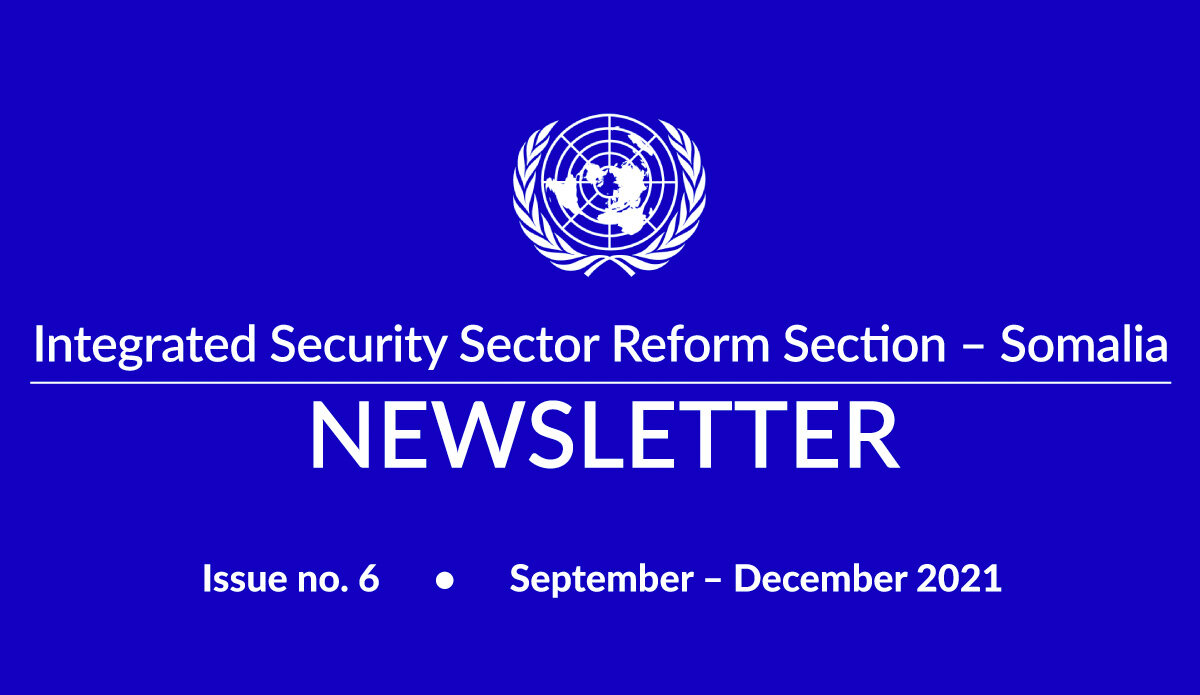NEWSLETTER HIGHLIGHTS
Advancement of Women’s representation in Somali Security and Defence Institutions
UNSOM-UNDP I-SSR Section launched a project to advance women’s representation in security and defence institutions in collaboration with the Office of Prime Minister Peacebuilding Coordination and Gender units. The project included an assessment of the number of women presently involved in the security sector; the challenges they face with recruitment, promotion and training; and an examination of existing legal and policy gaps contributing to gender inequity in the security sector. Read more...
Women in the Maritime Sector developments
UNSOM I-SSR continued to support the Federal Government, Federal Member States (FMS) and Somali maritime stakeholders in advancing the Women in the Maritime Sector (WiMS) initiative throughout the latter part of 2021. A series of in-person consultative workshops were conducted in all the FMS from October to December 2021, which saw FGS ministerial representatives travel to respective FMS capitals to develop the respective FMS WiMS Action Plans for the advancement of women’s participation in nation-building, specifically in relation to women’s engagement in Somalia’s maritime sector. Read more...
Somali Maritime Administration updates
On 5 December 2021, the monthly Somali Maritime Administration Working Group (SMA WG) took place involving FGS representatives, UNSOM, EUCAP and UNODC. Due to COVID-19 restrictions the monthly SMA meetings during 2021 had been held virtually, but following an improvement in the overall COVID situation, UNSOM was able to support the SMA in convening a face-to-face meeting at a venue in Mogadishu. Read more...
UNSOM supports Somali Parliaments for enhanced Civilian Oversight of the Security Sector
The UNSOM-UNDP I-SSR team has delivered a series of workshops to Somali Federal Member States (FMS) on best practices for Civilian Oversight of the Security Sector. The workshops were organized in partnership with various ROLSIG sections, UNSOM regional offices and the Geneva Democratic Centre for Security Sector Governance (DCAF). The activity targeted a total of 66 Members of Parliament (MPs) sitting within the State Parliamentary Committees on Defence and Security for Hirshabelle, Jubaland and South West State, over a period spanning from October to December 2021. Read more...
Somaliland Threat Assessment Task Force Core Group kicks off activities
On 6 October the inaugural meeting of the Somaliland Threat Assessment (SLTA) Task Force Core Group convened in Hargeisa, chaired by the Ministry of the Interior and featuring diverse inter-ministerial participation. With the support from UNSOM-UNDP I-SSR team, the SLTA Core Group convened again on 15 December 2021, identifying key areas that will be covered in the assessment, as well as the inclusion of local civil society organisation as observers. In particular, two organisations were brought in the process, namely the Somaliland Non-State Actors Forum (SONSAF) and NAGAAD, a voluntary network of 46 women’s organisations in Somaliland. Read more...
Advancement of Women’s representation in Somali Security and Defence Institutions
UNSOM-UNDP I-SSR Section launched a project to advance women’s representation in security and defence institutions in collaboration with the Office of Prime Minister Peacebuilding Coordination and Gender units. The project included an assessment of the number of women presently involved in the security sector; the challenges they face with recruitment, promotion and training; and an examination of existing legal and policy gaps contributing to gender inequity in the security sector.
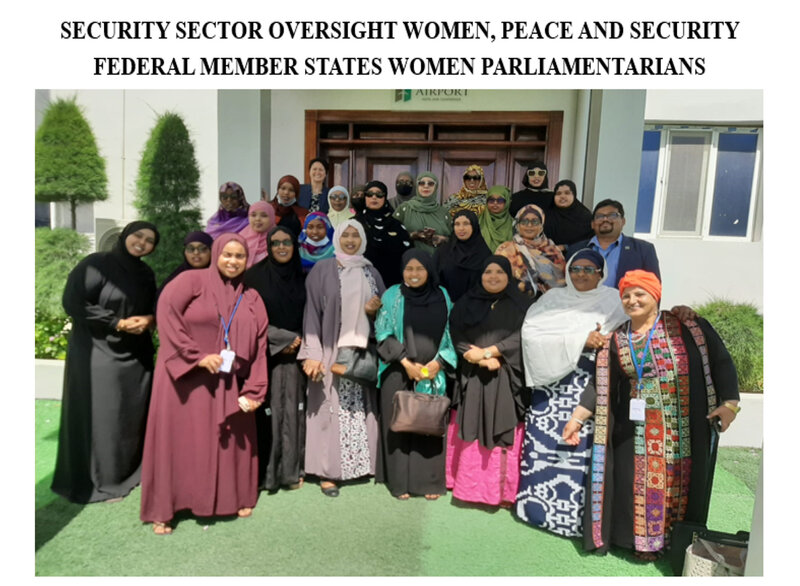
On 25-26 October 2021, the I-SSR Section with the Office of Prime Minister jointly conducted a National Conference in Mogadishu, which was attended by the Federal Government of Somalia Minister of Internal Security; the Minister of Defense; the Minister of Women and Human Rights; the chairs of Federal Parliament Defense and Security committees; police, immigration, custodial corps, and national defense forces; and civil society organisations (CSO). The conference highlighted the importance of promoting women’s meaningful participation in the Somali security and defence institutions, and the implementation of the Women Peace and Security (WPS) agenda. Topic covered included also a discussion on gender inequalities in the security sector, and ways of strengthening strategic coordination among institutions and donors, to advocate for gender parity at all levels in the security institutions.
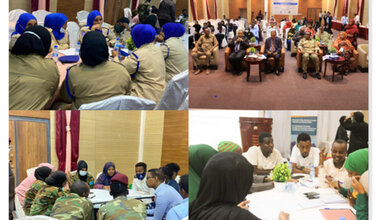
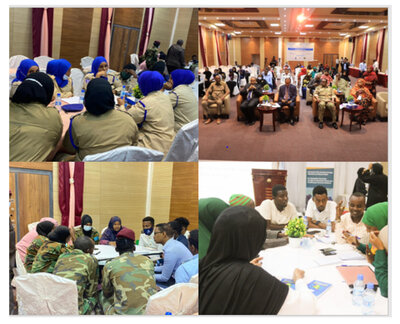
In addition, the UNSOM-UNDP I-SSR Section hosted two events to commemorate the anniversary of UN Security Council Resolution 1325 (2000) and the ‘16 days of activism’ against gender-based violence. The activities helped to raise awareness on the importance of women’s participation in security sector decision-making and their inclusion in the Somali security forces. On 25 November, 30 representatives from civil society organisations gathered in Mogadishu to discuss the latest developments in Somalia’s security and rule of law institutions. The CSOs stressed the importance of increasing the number of female police officers, and for security forces to be more aware about the specific needs of women and children, in particular when it comes to sexual and gender-based violence.
The second event, which took place between 27-28 November, brought together 34 women parliamentarians from Somalia’s five Federal Member States parliaments, who received detailed briefings on the importance of parliaments in civilian oversight of the security sector, FGS budget overview and fiscal federalism. Female parliamentarians were provided with an avenue to discuss specific challenges that they face, including for instance the lack of adequate resources compared to their male colleagues; patronage networks that disadvantage women; or the very low representation rates of women, often linked with arbitrary exclusion from security committees.
Women in the Maritime Sector developments
UNSOM I-SSR continued to support the Federal Government, Federal Member States (FMS) and Somali maritime stakeholders in advancing the Women in the Maritime Sector (WiMS) initiative throughout the latter part of 2021. A series of in-person consultative workshops were conducted in all the FMS from October to December 2021, which saw FGS ministerial representatives travel to respective FMS capitals to develop the respective FMS WiMS Action Plans for the advancement of women’s participation in nation-building, specifically in relation to women’s engagement in Somalia’s maritime sector. The key outcomes of these FMS level conferences were presented and discussed in the National Consultative Conference in WiMS, held on 29 December 2021 at a venue in Mogadishu. International Partner engagement on WiMS is being led by UNSOM and EUCAP Somalia, who have jointly funded and supported this important joint endeavour for Somali women.
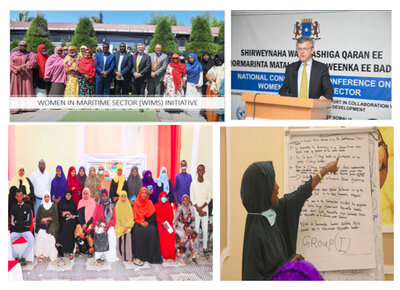
The National Consultative Conference provided an opportunity for Somali stakeholders to move towards finalizing a National WiMS Action Plan at the start of 2022, with ideas discussed including the introduction of scholarships for women in the maritime sector, increased focus on ways to work with coastal communities to allow women to play a greater role in economic development, drafting a common gender policy for the maritime sector to ensure more gender equality, enhancing the number of women in senior positions in the maritime sector, and organising communication campaigns to better spread information on the importance and opportunities which Somalia’s maritime domain offers. The National Consultative Conference attracted over 60 women participants from around Somalia. UNSOM and EUCAP Somalia have committed to jointly supporting the Ministry of Ports and Marine Transport (MPMT) and the Ministry of Women and Human Rights Development (MWHRD) in 2022, and to assist in bringing together other international stakeholders to allow the Action Plan to be presented as a way of attracting increased technical and financial support linked to the Women in the Maritime Sector (WiMS) initiative.
Somali Maritime Administration updates
On 5 December 2021, the monthly Somali Maritime Administration Working Group (SMA WG) took place involving FGS representatives, UNSOM, EUCAP and UNODC. Due to COVID-19 restrictions the monthly SMA meetings during 2021 had been held virtually, but following an improvement in the overall COVID situation, UNSOM was able to support the SMA in convening a face-to-face meeting at a venue in Mogadishu.
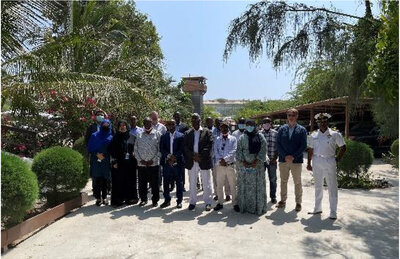
Updates on training activities and progress on the SMA’s Action Plan were discussed, including progress on ship registration and legal compliance, reflecting that Somalia is steadily progressing towards achieving Initial Operational Clearance (IOC) in 2022. The participation of university representatives was an important development for the Working Group, signifying opportunities to deepen the understanding of the importance of the maritime domain by the wider society in Somalia.
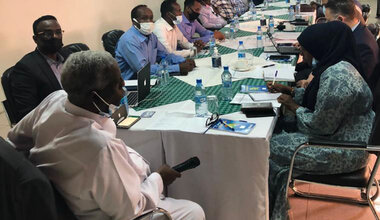
The SMA has made significant progress in strengthening Somalia’s maritime sector following its re-establishment in late 2019. International Partners have been able to play a important role by working closely with the Ministry of Ports and Maritime Transport (MPMT) and SMA representatives to provide strategic guidance on international legislation, technical advice, training and capacity building activities, including equipment and infrastructure support, in a domain that offers enormous opportunities for the Somali people.
UNSOM supports Somali Parliaments for enhanced Civilian Oversight of the Security Sector
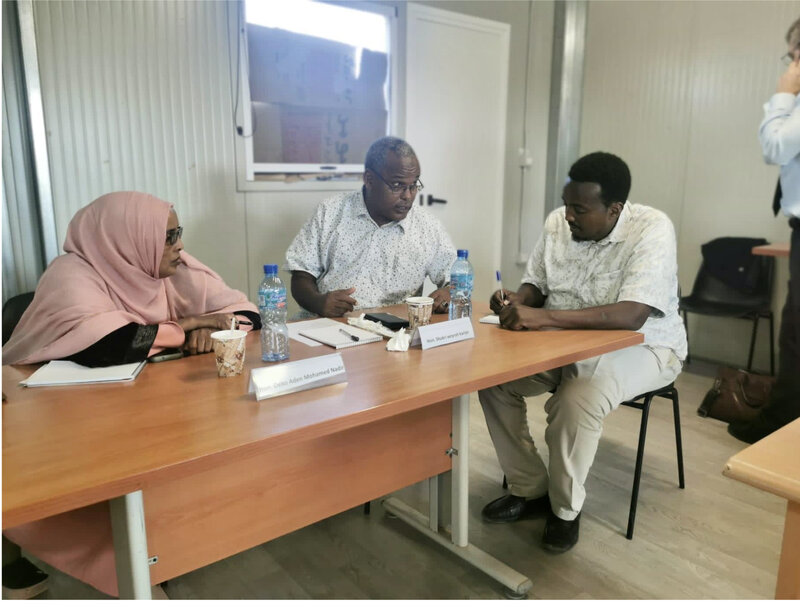
The UNSOM-UNDP I-SSR team has delivered a series of workshops to Somali Federal Member States (FMS) on best practices for Civilian Oversight of the Security Sector. The workshops were organized in partnership with various ROLSIG sections, UNSOM regional offices and the Geneva Democratic Centre for Security Sector Governance (DCAF). The activity targeted a total of 66 Members of Parliament (MPs) sitting within the State Parliamentary Committees on Defence and Security for Hirshabelle, Jubaland and South West State, over a period spanning from October to December 2021.
These activities allowed the I-SSR team to further advance their dialogue with relevant FMS parliamentarians, raising awareness on topics of strategic relevance for UNSOM, and coordinating with the counterparts the next steps for future programmes on Security Sector Reform/Governance (SSR/G), to be rolled out in 2022. Areas covered during the workshops included international agreements such as the Comprehensive Approach to Security (CAS), the updated Somali Transition Plan (STP), National Security Architecture (NSArch), and the Federated Police Model. The team also delivered a series of thematic presentations on topics ranging from Women and Youth inclusive governance; maritime and climate security; financial transparency; and anti-corruption.
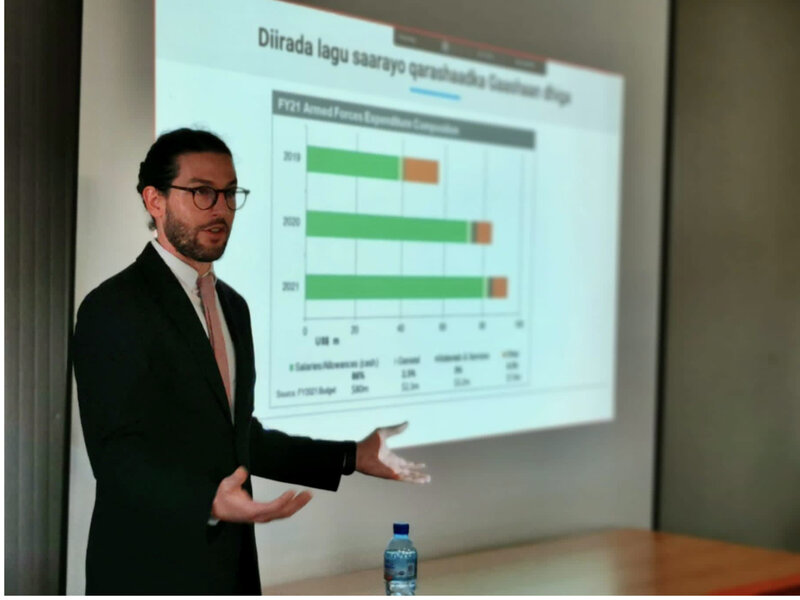
Somaliland Threat Assessment Task Force Core Group kicks off activities
On 6 October the inaugural meeting of the Somaliland Threat Assessment (SLTA) Task Force Core Group convened in Hargeisa, chaired by the Ministry of the Interior and featuring diverse inter-ministerial participation.
With the support from UNSOM-UNDP I-SSR team, the SLTA Core Group convened again on 15 December 2021, identifying key areas that will be covered in the assessment, as well as the inclusion of local civil society organisation as observers. In particular, two organisations were brought in the process, namely the Somaliland Non-State Actors Forum (SONSAF) and NAGAAD, a voluntary network of 46 women’s organisations in Somaliland.
The SLTA is set to become a key public government policy guidance document, which will impact the direction of the National Development Program III. I-SSR activities for this portfolio are conducted under the framework of the EU-Sweden funded Joint Rule of Law Programme for Somaliland (JROLP), and in line with the Somaliland National Development Programme II.
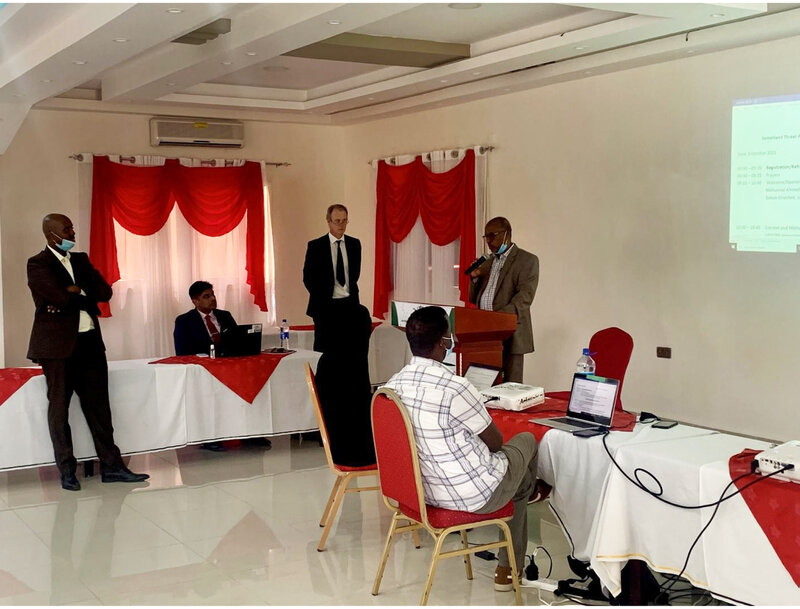
 UN
UN
